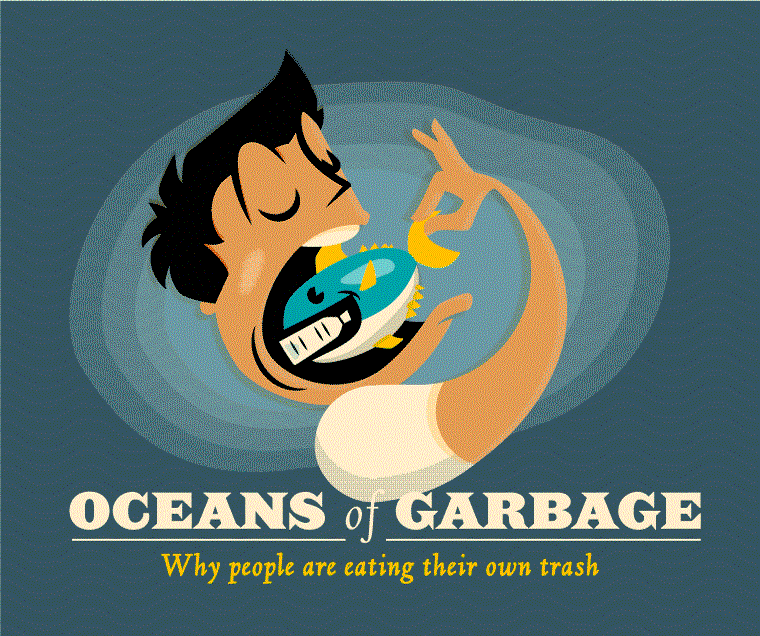If you’re working toward a Masters Degree in a nutritional sciences or public health-related field, chances are that you’re probably aware of the fact that sometimes, people don’t eat what’s best for them. Consuming unhealthy or non-nutritious food is usually a choice, but sometimes, the things people eat are much worse for them than they know. When it comes to seafood, the average person is consuming well over 30 pounds of it each year.
From those who are serious seafood aficionados to those who eat it for its numerous health benefits, people all over the world indulge in popular fish options like tuna, salmon, and more every day. But while the whole globe is enjoying its fishy favorites, very few are taking into account that there’s something else lurking in the water: Garbage. With 70% of our Earth’s surface covered in water, and the other 30% of land being inhabited by 7 billion people, it comes as no surprise that some of the waste we generate is ending up in the water. But realistically, far more trash is flooding our oceans, rivers, and lakes than people think, and this has begun to result in murkier waters, warmer oceans, and bits of trash in the bellies of fish we eat. In a one-day clean-up of shores the whole world over, people have been shocked by the sheer volume of refuse one can collect in a day. It has become clear that continual clean-up of our world’s water is absolutely necessary—or else we’ll be eating our own trash, now and for years to come.
If you are interested in getting a Master’s Degree in Global Health, visit: https://www.mastersdegree.net/masters-degree-global-health-career-options/
And if you want to know how long does it take to get a Master’s Degree, read this in-depth guide: https://www.mastersdegree.net/how-long-does-it-take-to-get-a-masters-degree/


